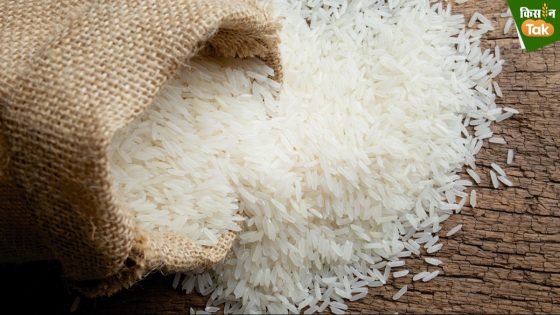Rice export prices from India, one of the world’s top exporters, have experienced a slight increase this week.
The surge comes as traders factored in higher duties on rice shipments, while demand in Thailand remains subdued.
The 5% broken parboiled variety from India is now quoted at $550-$558 per ton, marking an uptick from the previous range of $543-$550, reported news agency Reuters. It may be noted that prices hit a record high of $560 earlier this month.
Explaining the price hike, a dealer based in New Delhi, representing a global trade house, pointed to the government’s shift in calculating the 20% export duty. Instead of using the Free on Board (FOB) value, authorities are now considering the total transaction value, leading to upward pressure on export prices.
“We’ve had to raise prices since the government is considering the total transaction value instead of Free on Board (FOB) value to calculate the 20% export duty. This has pushed our export prices higher,” the dealer said.
In response to domestic price concerns, New Delhi implemented a 20% export duty on parboiled rice exports back in August 2023.
Surprise tax demand
However, Indian exporters are now grappling with unexpected notices from the customs department, demanding payment of duty differentials on rice exported over the past 18 months. This surprise tax demand could significantly disrupt rice shipments from India.
Meanwhile, Thailand’s 5% broken rice prices are quoted at $585-$590 per ton, down from last week’s range of $598.
The decrease is attributed to a weakening baht and subdued demand, although Indonesian buyers are providing some support to prices.
In Vietnam, although rice is cheaper, there’s pressure due to the approaching end of the local supply season. Vietnam’s 5% broken rice is offered at $590-$595 per metric ton, remaining unchanged from the previous week.
However, exporters in Vietnam have slowed down purchases from farmers in response to a US forecast suggesting a potential reduction in rice imports by the Philippines due to rising domestic supplies. The Philippines stands as Vietnam’s largest rice export market.
In Bangladesh, rice prices remain high despite favourable yields and reserves.
To alleviate domestic price pressures, officials are considering allowing private traders to import up to 200,000 tonnes of rice. This move aims to stabilize the prices of this essential commodity in the Bangladeshi market.
Source Agencies



